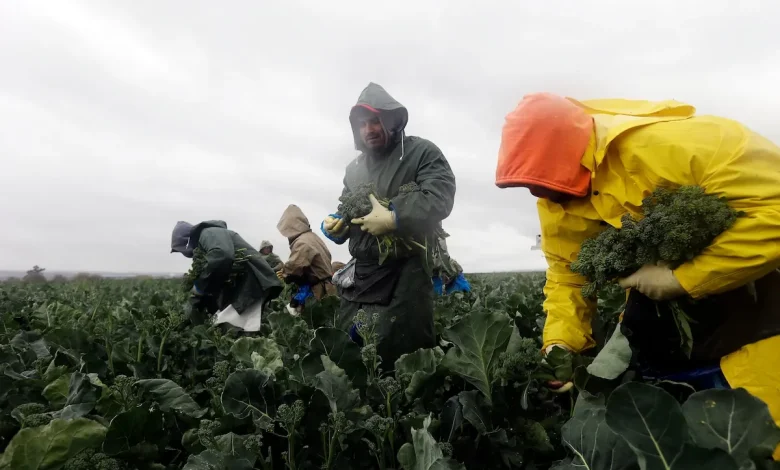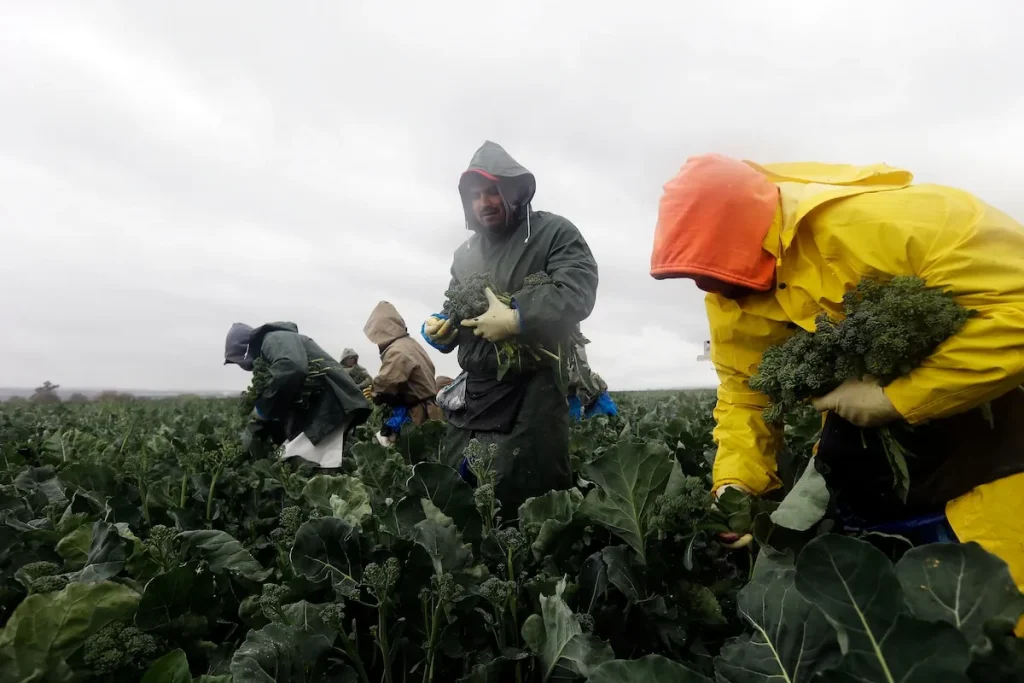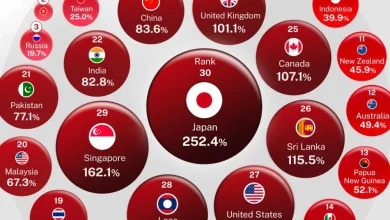The Role of Illegal Immigrants in US Food Production

Illegal immigrants play a significant role in U.S. food production, particularly in labor-intensive sectors like agriculture and meatpacking.They often fill crucial roles that domestic workers are unwilling or unable to take, ensuring the timely harvest and processing of crops and livestock. While their contributions are essential to the nation’s food supply, their legal status makes them vulnerable to exploitation and limits their access to labor protections and benefits.
1. Farmworkers are essential workers – and most are immigrants
Indeed, farmworkers are vital employees who make sure that crops are planted, grown, and gathered, which is a critical part of the food production process. Immigrants, primarily from Latin America, especially Mexico, make up the bulk of farmworkers in the United States.
These laborers work in low-wage, physically taxing tasks, frequently in difficult environments, but they are essential to the country’s food supply and agricultural sector.
Despite their significance, farmworkers encounter numerous difficulties, including as exposure to dangerous working conditions, limited labor protections, and limited access to healthcare. Their rights have been continuously fought for, with particular attention paid to problems like access to legal protections, higher pay, and better working conditions.

2. Why do undocumented immigrants work in agriculture?
Because they provide employment possibilities that are hard to fill with the domestic workforce, many undocumented immigrants engage in agriculture. These occupations are available to immigrants looking for work in the United States since they frequently pay lower wages, demand a lot of labor, and may not require formal education.
3. How do undocumented immigrants affect food prices?
The U.S. food production system heavily relies on undocumented immigrants, especially in labor-intensive industries like meatpacking and agriculture. Food prices are kept relatively cheap by their willingness to labor long hours in difficult conditions, frequently for lower pay. Domestic workers could result in greater labor expenses for these positions, which would probably be passed on to consumers in the form of higher food prices. Undocumented immigrants support the smooth functioning of the food supply chain by doing these crucial tasks, which keeps consumer food prices reasonable.
4. The Essential Role of Immigrants in the U.S. Food Supply Chain
- The vast majority of farmworkers are foreign-born: About half of the agricultural workforce in the United States is made up of immigrants, especially those from Mexico and Central America. From planting and caring for crops to harvesting, many people who are not officially recognized make substantial contributions to the production of food.
- Labor-Intensive Roles: In labor-intensive agricultural jobs, particularly in the production of fruits, vegetables, and dairy products, immigrant labor is crucial. These occupations frequently require little mechanization and long hours under difficult circumstances.
- Economic Contributions: By keeping labor costs low, immigrants contribute to the economic sustainability of American agriculture and enable reasonably priced food. Their efforts support maintaining a competitive advantage for American agricultural products in the international market. IMMIGRATION IMPACT.
- Supporting the Food Supply Chain: In addition to working on farms, immigrants work in food processing, packing, delivery, and even dining establishments. From farm to table, they play a crucial part in the whole food supply chain.
Conclusion
The food production system in the United States depends heavily on undocumented immigrants, especially in labor-intensive industries like meatpacking and agriculture. Their assistance is crucial to guaranteeing a steady and reasonably priced supply of food. Their legal status, however, restricts their access to benefits and labor safeguards and leaves them open to exploitation. A comprehensive strategy that strikes a balance between social justice concerns and economic needs is needed to address the complicated problem of unauthorized immigration.
faqs:
1. Why do undocumented immigrants work in agriculture and meatpacking?
Undocumented immigrants work in agriculture and meatpacking because these industries offer abundant job opportunities with low skill requirements and limited legal barriers. These jobs are often labor-intensive, low-paying, and located in areas where U.S. workers are less likely to take them. Many immigrants seek work in these sectors due to economic necessity, the availability of jobs through established community networks, and fewer employment options due to their legal status.
2. What are the legal and ethical implications of employing undocumented immigrants?
There are serious ethical and legal ramifications when unauthorized immigrants are employed. Employers who hire people without valid documentation are breaking U.S. immigration regulations, which require that individuals have the right authorization to work in the nation. Employers may be subject to fines, penalties, and legal repercussions as a result.
The position is more complicated ethically. Although illegal immigrants frequently fill hard-to-fill positions and make substantial contributions to sectors like meatpacking and agriculture, their lack of legal status exposes them to exploitation, including low pay, hazardous working conditions, and restricted access to labor rights.
3.What are the challenges faced by undocumented workers in agriculture?
Undocumented workers in agriculture face numerous challenges, including exploitation, abuse, and lack of labor protections. They are often subjected to wage theft, unsafe working conditions, and verbal or physical abuse due to their vulnerable legal status.
The fear of deportation further limits their ability to report labor violations or seek help. Additionally, they often lack access to affordable healthcare and face language barriers that hinder communication and integration. These challenges create a cycle of vulnerability and exploitation, making it difficult for undocumented workers to improve their working conditions and overall well-being.



